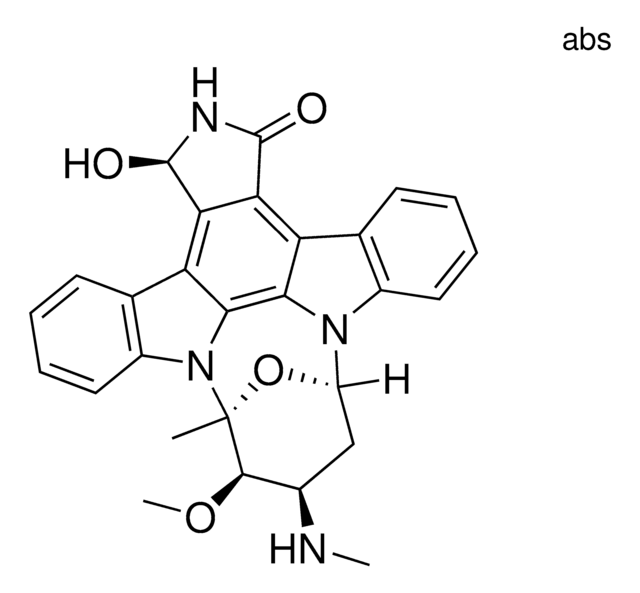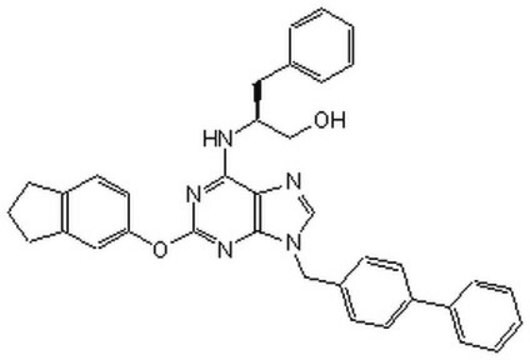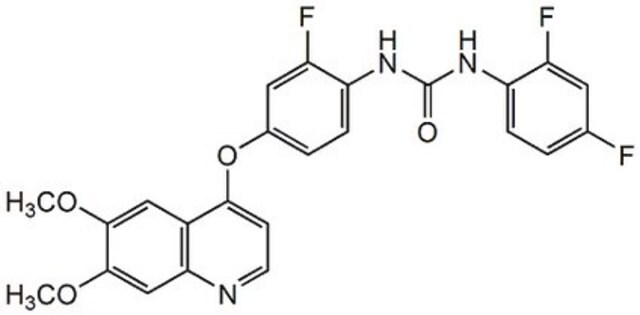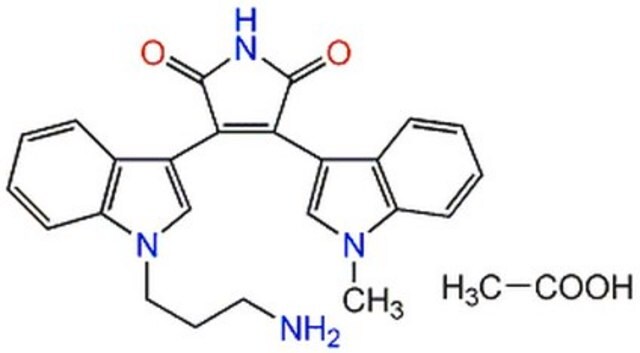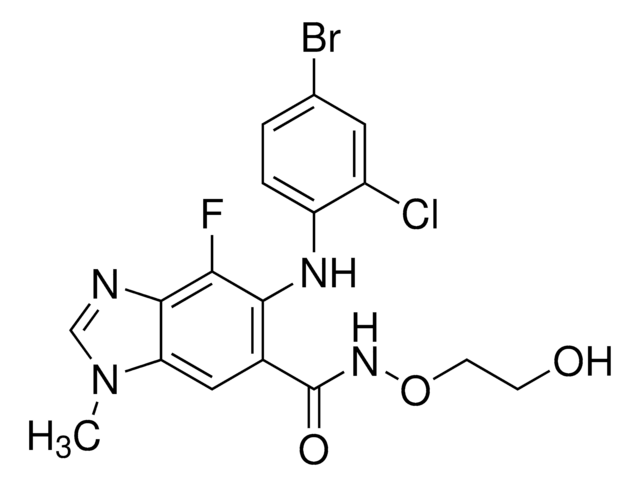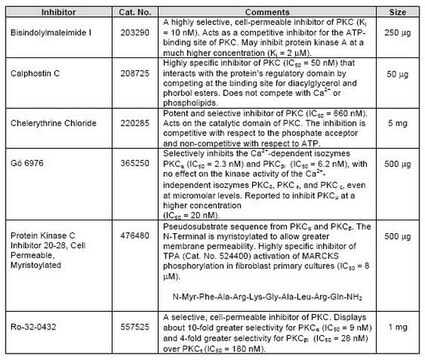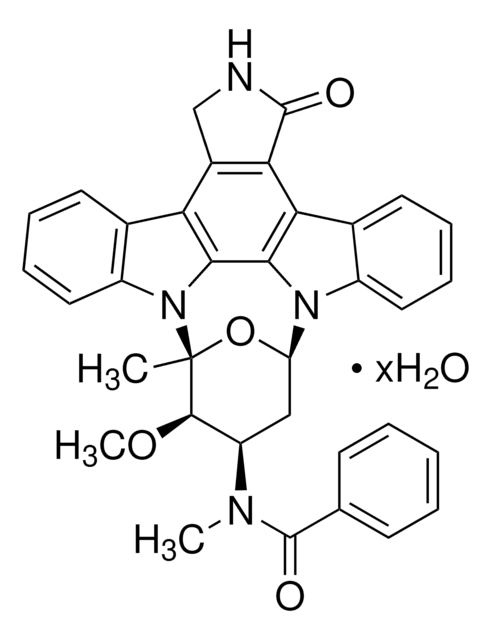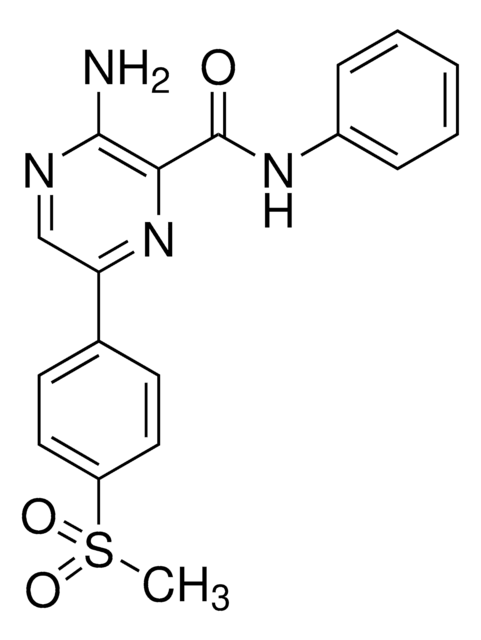539644
UCN-01
A cell-permeable Staurosporine derived anticancer agent that reversibly and ATP-competitively inhibits several protein kinases.
Synonym(s):
UCN-01, 7-Hydroxystaurosporine, Staurosporine, 7β-Hydroxy, Streptomyces sp., Chk1 Inhibitor VI, Chk2 Inhibitor V
About This Item
Recommended Products
Quality Level
Assay
≥95% (HPLC)
form
solid
manufacturer/tradename
Calbiochem®
storage condition
OK to freeze
protect from light
color
tan
white to beige
solubility
ethanol: 1 mg/mL
DMSO: 5 mg/mL
shipped in
ambient
storage temp.
2-8°C
SMILES string
[n]21c3c4[n](c6c(c4c7c(c3c8c2cccc8)[C@H](NC7=O)O)cccc6)[C@@H]5O[C@]1([C@@H]([C@@H](C5)NC)OC)C
InChI
1S/C28H26N4O4/c1-28-25(35-3)15(29-2)12-18(36-28)31-16-10-6-4-8-13(16)19-21-22(27(34)30-26(21)33)20-14-9-5-7-11-17(14)32(28)24(20)23(19)31/h4-11,15,18,25,27,29,34H,12H2,1-3H3,(H,30,33)/t15-,18-,25-,27-,28+/m1/s1
InChI key
PBCZSGKMGDDXIJ-HQCWYSJUSA-N
General description
Biochem/physiol Actions
PKCα, PKCβ, PKCγ, PKCδ PKCε, Chk1, Cdc25C-associated protein kinase 1, Cdk1, PAK4, Cdk5/p25 and Chk2, PDK1, lck, MAPKAP kinase-2, Akt, GSK-3β and PKA
Packaging
Warning
Reconstitution
Other Notes
Jiang, X., et al. 2004. Mol. Cancer Ther.3, 1221.
Sato, S., et al. 2002. Oncogene21, 1727.
Patel, V., et al. 2002. Clin. Cancer Res.8, 3549.
Leclerc, S., et al. 2001. J. Biol. Chem.276, 251.
Busby, E.C., et al. 2000. Cancer Res.60, 2108.
Hsueh, C.T., et al. 1998. Clin. Cancer Res.4, 2201.
Akiyama, T., et al. 1997. Cancer Res.57, 1495.
Seynaeve, C.M., et al. 1994. Mol. Pharmacol.45, 1207.
Takahashi, I., et al. 1987, J. Antibiot.40, 1782.
Legal Information
Storage Class Code
11 - Combustible Solids
WGK
WGK 3
Flash Point(F)
Not applicable
Flash Point(C)
Not applicable
Regulatory Listings
Regulatory Listings are mainly provided for chemical products. Only limited information can be provided here for non-chemical products. No entry means none of the components are listed. It is the user’s obligation to ensure the safe and legal use of the product.
JAN Code
539644-UG:
539644-1.1ML:
539644-500UG:
Certificates of Analysis (COA)
Search for Certificates of Analysis (COA) by entering the products Lot/Batch Number. Lot and Batch Numbers can be found on a product’s label following the words ‘Lot’ or ‘Batch’.
Already Own This Product?
Find documentation for the products that you have recently purchased in the Document Library.
Our team of scientists has experience in all areas of research including Life Science, Material Science, Chemical Synthesis, Chromatography, Analytical and many others.
Contact Technical Service
